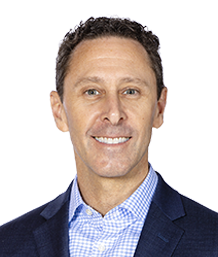10 Rules for Preventing Cardiovascular Disease and Other Sugar-Related Illnesses

Sugar is toxic. No, it won’t kill in seconds like cyanide does, but it does kill—in a slow, insidious manner. Sugar is linked to a wide variety of conditions, including heart disease, the leading cause of death in the United States.
Low-carb diet experts Jeffrey Gerber, MD, and Ivor Cummins, an engineer, wrote Eat Rich, Live Long: Mastering the Low-Carb & Keto Spectrum for Weight Loss and Longevity, a book that explains their opinion of how cardiovascular disease, diabetes, Alzheimer’s disease and Parkinson’s disease manifest. It's available on Amazon, I thought I’d share some of their principles or “10 Commandments” of preventing these sugar-related diseases.
- Avoid sugar and refined carbs. These are grains that have been processed, removing the fiber and nutrients. Most white-flour products such as white bread, pastries and rolls are good examples. And it’s a lot easier said than done. Many of your favorite foods are probably high in sugar or refined carbs.
- Avoid omega-6 fatty acids. They’re incredibly toxic. You’ll find them in many vegetable, seed and soybean oils and salad dressings. Better choices are butter, coconut oil and olive oil.
- Avoid processed foods. This is another tough one. Look inside your freezer. You’ll probably find frozen bags and boxes. These foods are all processed. Whole foods without packaging are generally the healthiest.
- Eat a low-carb, moderate-protein, high-fat diet. This will help you burn fat for fuel—unless of course, you want to carry that spare tire around. Many books are available to help you, e.g., Fat for Fuel and The Keto Reset Diet.
- Get more sun. And if that’s not possible, supplement with vitamin D. Your vitamin D levels should fall between 40 and 60 ng/mL. Studies have found that low vitamin D levels are a breast cancer risk factor for women over 50. But vitamin D isn’t the only health benefit of getting some sun. Studies suggest that sunshine can kill bad bacteria, ease skin conditions like eczema, psoriasis and acne, and may lower cholesterol.
- Reduce stress. You’ve probably heard this advice 100 times—but it does make a difference in your health. Make time for activities that help you decompress—like reading, meditating or gardening. Watching low-key TV shows and movies can help. Don’t discount the positive affect of living a healthier lifestyle has on your stress levels. Getting enough physical activity, nutrients and sleep can help. For instance, I relax by exercising, learning/teaching and spending time with my family.
- Add fasting to your weekly routine. Studies suggest fasting reduces insulin, IGF-1 (cancer factor), weight, C-reactive protein (an inflammation marker), blood pressure and cholesterol. But the thought of fasting is probably dreadful. That’s why I suggest using a fasting mimicking protocol. Researchers have found it can be just as effective as actual fasting. Consult your doctor before making any changes to your diet and continue reading to learn more »
- Get more sleep. If you’re parent you probably didn’t allow your children to get by on five or six hours of sleep—then why should you? Get seven to eight hours of sleep each night. Aging is nothing more than unrepaired body damage. And sleep restores your body and repairs damage. If you think about it, you’re also fasting, which helps heal the body. Lastly, melatonin, the hormone that makes us feel sleepy, also helps fix damage.
- Start strength training. For years you’ve heard the importance of aerobic training. And while cardiovascular exercise is an important component of health, having more muscle is key to managing insulin levels. Swap a few hours on the treadmill with some weight training. But before you call a personal trainer, talk to you doctor about weight training.
- Use the appropriate supplements. Supplements are very controversial topic. However, the typical American diet lacks many nutrients, and I believe that using the right supplements can help fill in nutritional gaps. For example, one of my newest go-to supplements is berberine. It can help lower blood sugar, cholesterol and triglycerides in certain patients. My suggestion is to talk to your doctors about using these seven vitamins and supplements »
Consult your primary care physician before making any changes to your diet. If you liked this blog post, you can follow Dr. Malinow on his Facebook page. Are you interested in an MDVIP-affiliated physician? Find one near you and begin your partnership in health »
This blog reflects the medical opinion of Dr. Lou Malinow, an MDVIP-affiliated internist, board-certified hypertension specialist and Diplomate of the American Board of Lipidology, and not necessarily the opinion of all physicians in the MDVIP national network.
This blog was reviewed and updated on June 24, 2021.

